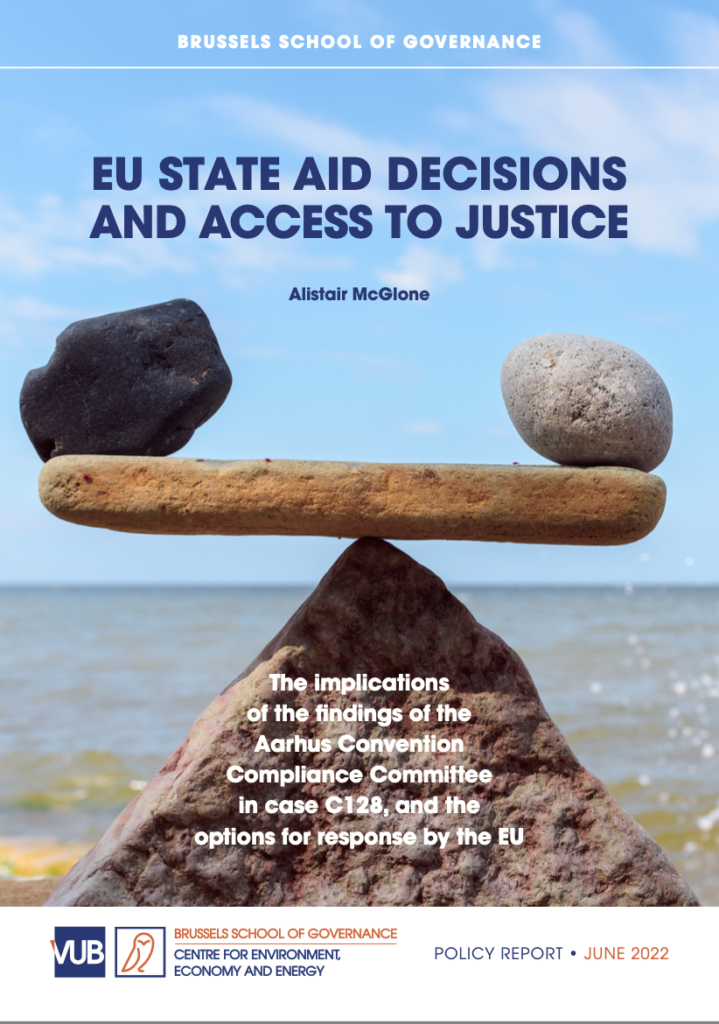EU State aid decisions and access to justice:
The implications of the findings of the Aarhus Convention Compliance Committee in case C128, and the options for response by the EU
By Alistair McGlone
 State aid can be a powerful tool to incentivise measures that protect the environment and address climate change. But State aid also has the potential to support projects that undermine the EU’s long-term climate and environmental targets; and for that reason it is regrettable that EU Commission State aid decisions that breach climate and environmental law are virtually unchallengeable by NGOs and individuals.
State aid can be a powerful tool to incentivise measures that protect the environment and address climate change. But State aid also has the potential to support projects that undermine the EU’s long-term climate and environmental targets; and for that reason it is regrettable that EU Commission State aid decisions that breach climate and environmental law are virtually unchallengeable by NGOs and individuals.
That absence of accountability is contrary to international law: the Compliance Committee of the Aarhus Convention has found – in Case C128 – that the EU is in breach of its international obligations because the Union fails to provide access to justice for members of the public to challenge Commission decisions on State aid that contravene Union environmental law. The EU has made matters even worse by blocking the endorsement of the Convention’s Meeting of the Parties, whilst launching a consultation on what to do next.
This paper considers the implications of the C128 findings, and the EU’s options to respond to them. The implications of the EU’s behaviour are stark: the Union’s reputation as a reliable partner and leader in international environmental law has been damaged. What is more, there are compelling reasons for making the EU Commission accountable, including the urgent necessity to ensure that State aids decisions are compatible with the Union’s climate targets.
By far the most attractive option to respond to the findings would be a simple amendment to EU legislation: the Aarhus Regulation – which applies the Convention to the Union’s institutions and bodies – could be changed to allow access to justice to challenge State aid decisions. That would be in accordance with the recommendations of the Compliance Committee and would be an uncomplicated and effective response to the Union’s non-compliance with the Aarhus Convention.
Back to all news

